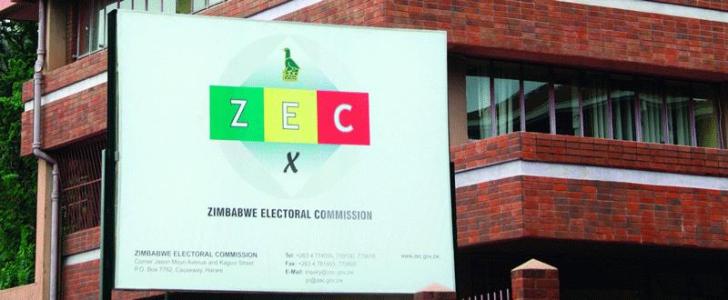News / National
Zimbabwe elections watchdog raises concerns over data privacy
22 Nov 2024 at 07:32hrs |
0 Views

The Elections Resource Centre (ERC) has expressed serious concerns about the proposed amendments to the Constitution and the Electoral Act, which aim to introduce automatic voter registration for 18-year-olds ahead of Zimbabwe's 2028 elections. The amendments, spearheaded by Justice and Parliamentary Affairs Minister Ziyambi Ziyambi, would transfer the responsibility for registering voters from the Zimbabwe Electoral Commission (ZEC) to the Civil Registry Department (CRD), a move that the ERC argues raises significant privacy and constitutional issues.
The proposed changes are designed to address low voter registration levels and streamline the process. However, ERC, a prominent elections watchdog, has raised alarm over the privacy implications of using personal data without consent. The current registration model, which requires individuals to voluntarily present themselves at a registration center and consent to the collection of personal and biometric data, could be circumvented by the new proposals.
According to ERC, the use of personal information without consent would contravene Section 10 of the Cyber and Data Protection Act, which states that personal data can only be processed if the individual consents to it. "The current proposals will seemingly bypass the consent requirement and raise privacy concerns around the use of personal data," ERC stated in its critique.
The watchdog also argued that shifting the voter registration function entirely to the CRD would undermine the independence of ZEC, which is tasked with overseeing the country's elections. ERC emphasized that while collaboration between ZEC and the Civil Registry Department is necessary to improve voter registration, the entire responsibility should not be transferred. "The government should support collaboration between ZEC and the CRD through practice and/or policy changes that allow the electoral commission to coordinate voter registration with the Civil Registry without taking away the function from the commission," ERC said.
In its recommendations, the ERC called on the government to provide sufficient funding to ZEC for periodic voter registration drives, particularly in areas with low registration rates. The organization also urged the government to facilitate partnerships between ZEC and civil society organizations to enhance voter registration, noting the success of such collaborations in the 2018 mass voter registration campaign.
Furthermore, ERC has called for broad consultations with the public on the proposed amendments and the development of a clear roadmap for the 2028 elections. This includes timelines for gathering public input on areas of reform and the creation of a multi-stakeholder platform to ensure that all relevant parties are involved in the process.
As the country approaches the 2028 elections, the ERC's concerns underscore the importance of balancing efficiency in voter registration with the protection of citizens' rights to privacy and the preservation of independent electoral processes. The proposed amendments are likely to be a subject of ongoing debate as Zimbabwe prepares for its next electoral cycle.
The proposed changes are designed to address low voter registration levels and streamline the process. However, ERC, a prominent elections watchdog, has raised alarm over the privacy implications of using personal data without consent. The current registration model, which requires individuals to voluntarily present themselves at a registration center and consent to the collection of personal and biometric data, could be circumvented by the new proposals.
According to ERC, the use of personal information without consent would contravene Section 10 of the Cyber and Data Protection Act, which states that personal data can only be processed if the individual consents to it. "The current proposals will seemingly bypass the consent requirement and raise privacy concerns around the use of personal data," ERC stated in its critique.
In its recommendations, the ERC called on the government to provide sufficient funding to ZEC for periodic voter registration drives, particularly in areas with low registration rates. The organization also urged the government to facilitate partnerships between ZEC and civil society organizations to enhance voter registration, noting the success of such collaborations in the 2018 mass voter registration campaign.
Furthermore, ERC has called for broad consultations with the public on the proposed amendments and the development of a clear roadmap for the 2028 elections. This includes timelines for gathering public input on areas of reform and the creation of a multi-stakeholder platform to ensure that all relevant parties are involved in the process.
As the country approaches the 2028 elections, the ERC's concerns underscore the importance of balancing efficiency in voter registration with the protection of citizens' rights to privacy and the preservation of independent electoral processes. The proposed amendments are likely to be a subject of ongoing debate as Zimbabwe prepares for its next electoral cycle.
Source - NewZimbabwe
Join the discussion
Loading comments…


































